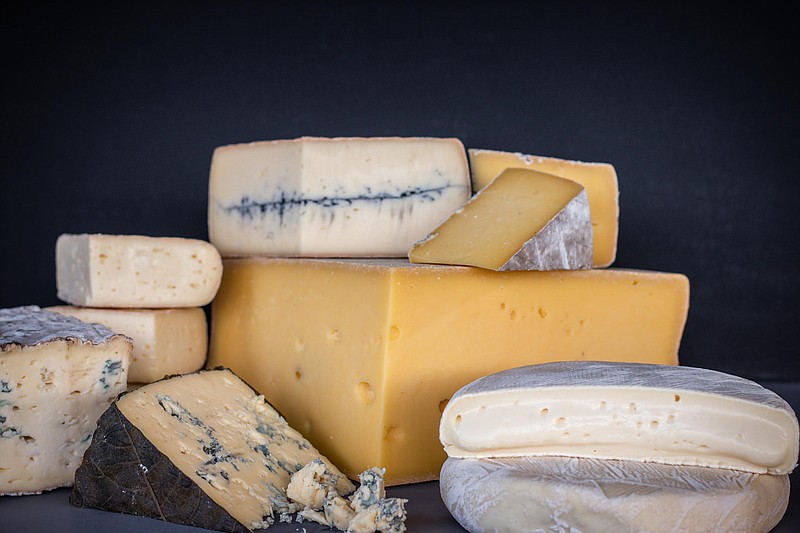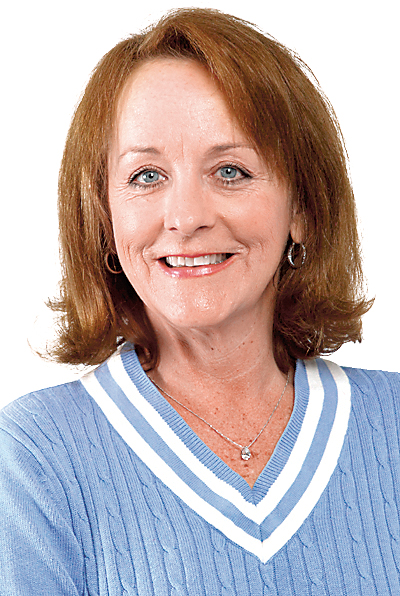Padgett Arnold and her husband, Nathan, have been making cheese in Tennessee's Sequatchie Valley for just 10 years, but in that time their Sequatchie Cove Creamery has won numerous awards. They've had two top showings in Wisconsin's U.S. Championship Cheese Contest, with Best in Class wins for Shakerag Blue in 2015 and Cumberland in 2017. Their cheeses also have won American Cheese Society and Good Food Foundation awards.
Cheese lovers worldwide have enjoyed products from Sequatchie Cove, but popularity, accolades and prize ribbons could not stand up to the harm done to America's specialty cheese industry brought on by the coronavirus pandemic.
"Our wholesale business is down by 65% or more," Padgett Arnold says, adding that the creamery was forced to pivot to online sales when retail self-quarantine recommendations saw empty aisles and barren shelves in grocery stores.
"Our online sales were almost nonexistent before," she says. "We saw a good bit of support in April, but since then, the momentum of online sales has dropped."
All news is not negative though. The support of the local community came through when the Main Street Farmers Market reopened. Sequatchie Cove Creamery cheeses are sold there every Wednesday.
"Sales have never been better at the market," Arnold says, adding that they're nearly double what they were before the pandemic. However, she says, "This is not near enough to offset the loss of wholesale outlets. Our distributors comprised easily 90% of total sales in the past, and this is where we have been impacted most."
The problem is far-reaching. The artisan cheese industry once flourished in Vermont, but now many of the state's cheesemakers are facing a huge economic downturn. Cheesemaker Mateo Kehler, co-founder of Jasper Hill Farm in Greensboro, Vermont, says his sales dropped 40% when social distancing began, followed by 10% more in the following weeks. Sales of one of his most-loved cheeses, Bayley Hazen Blue, are down 70%.
As for soft cheeses, which are far more perishable than hard, aged cheeses, "we've been having to give them away," he says, adding that the farm was forced to sell 50 of its cows in order to manage cash flow.
Where to find specialty artisanal cheese
Cheese from Sequatchie Cove Creamery and other artisanal cheese farms can be found locally at:* Main Street Farmers Market, 1804 Chestnut St. (4-6 p.m. Wednesdays)* Bleu Fox Cheese Shop, 324 E. Main St.* Main Street Meats, 217 E. Main St.* Pruett’s Market, 1210 Taft Highway, Signal Mountain* Bread and Butter, 3955 Dayton Blvd.* Whole Foods Market, 301 Manufacturers Road* Mooney’s Market, 1265 W. Main St., Monteagle, Tenn.* Saturdays at the Trading Post, at Sequatchie Cove Farm, 320 Dixon Cove Road, Sequatchie, Tenn. (order online for pickup 9-11 a.m. Eastern Saturdays; call 423-942-9201 to arrange another pickup time or date)
Small farms vs. the big cheese
Visit any big grocery store, and the big cheeses stand out - Kraft, Sargento, Cabot and others - made in huge factories with massive rooms of gigantic machinery churning out blocks wrapped in plastic and loaded onto big refrigerated trucks to ship around the country.
Specialty cheeses, on the other hand, are produced by hand on a smaller scale, using traditional methods and ripening techniques.
"In our case, we take it another step beyond specialty," Arnold says. "We are farmstead, which goes even further toward creating a truly unique finished product, not unlike an aged wine from a particular region and grape."
The milk used in Sequatchie Cove's cheese comes from cows raised on the 100-acre property.
"We seek to capture the character of our milk and the influence of our particular agricultural surroundings and environment," Arnold says.
This type of production, she adds, is impossible in a large-scale commercial/industrial processing facility.
Victory Cheese
Victory Gardens in World War II were designed to boost morale and feed families in troubled times. Victory Cheese is designed to boost the cheese industry and give cheese lovers a chance to do their part in saving it. The task force is rallying retailers, restaurateurs and organizations nationwide to curate and sell Victory Cheese Boxes, locally customized collections with a portion of proceeds benefiting cheese, food or agriculture nonprofits.For more information, including where you can purchase a Victory Cheese Box, visit victorycheese.com.Padgett Arnold says to her knowledge there are no retailers currently offering Sequatchie Cove cheeses in their designated Victory Boxes.“But we’ll seek to change that as it catches on in more locations,” she says.
Banding Together
In an effort to save small cheese companies from financial ruin, several individuals and groups have banded together, including entrepreneurs, chefs such as Rick Bayless and Art Smith, and cheese organizations such as the Oldways Cheese Coalition and the American Cheese Society, of which Sequatchie Cove and Jasper Hill are members.
"Our members and others are working together to address this urgent problem and come up with a timely and meaningful response to save their businesses and keep specialty cheeses' treasured place in American cuisine," says Karen Lundquist, executive director of the American Cheese Society and a Victory Cheese member. "With the launch of Victory Cheese, we're working to boost sales and create resources, which will help carry them through and preserve the incredible craft that feeds us all."
Arnold believes the campaign will help. "It has a great chance to reach many retailers and other outlets due to the large group of organizers behind it - people who have a lot of influence over the specialty cheese market in the United States. These are very knowledgeable and influential folks with their finger on the pulse of the specialty cheese market and the big players within that market."
Anthea Stolz, executive director of the California Artisan Cheese Guild, says artisan cheesemakers in California, a state that depends on its dairy industry, have lost up to 80% of their revenue as a result of the COVID-19 crisis.
"Like artisan cheesemakers across the country, our California artisan cheesemakers have had to pivot their businesses quickly, making gut-wrenching decisions, in an effort to weather this incredibly difficult period. We need the public's help saving American artisan cheese now. This is the time to choose it or lose it: Buy American artisan cheese to help save it and keep our cheesemakers churning."
Email Anne Braly at abraly@timesfreepress.com.
A call to action
There are a number of ways to support specialty cheesemakers here in the South and across the country.* Tell family, friends, neighbors and colleagues about the cheese crisis in America and the need to act now by purchasing your favorite U.S. produced specialty cheese.* In addition to stocking up on the basics, consider buying American specialty and artisan cheese, whether you buy at independent cheese stores, supermarkets, club stores, online or direct from the cheesemaker.* Support American specialty cheese by purchasing a Victory Cheese BoxAsk for American cheeses by name and try new ones. If you don’t find your favorites, ask retailers to stock them.* Show off your cheese purchases on social media and tag #VictoryCheese to raise awareness.* Join the American Cheese Society as an enthusiast member or a cheese guild to learn more about local cheeses and the people behind them. Most guilds welcome members from the public.* Visit YourMaker.Direct when it launches in coming weeks for consumer purchases and vote with your dollars.

